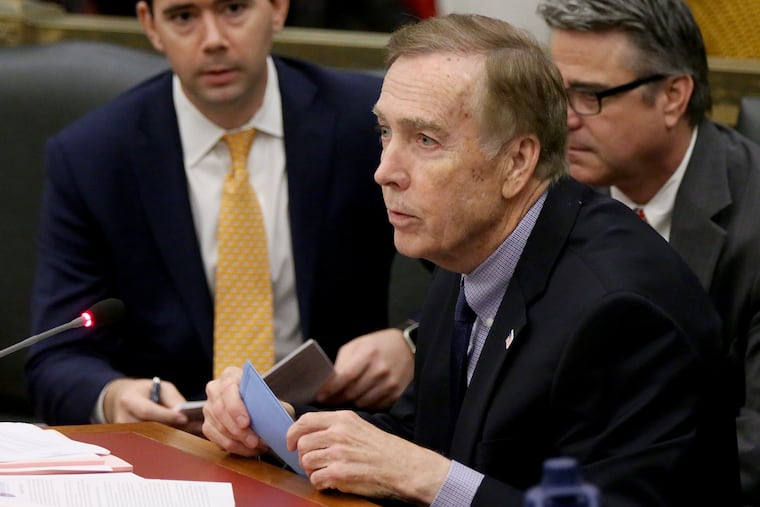Term limits for City Council will bring new voices to local politics | Editorial
Councilmembers should pass a measure limiting their service to four consecutive terms. After all, contested elections and new perspectives are critical to good government.

How long is too long to serve on City Council?
That’s the question at the heart of Councilmember Allan Domb’s bill to create, beginning in 2024, a four-term limit for how long he and his colleagues are able to remain in office. Domb says his bill is designed to ensure that Philadelphia voters have the opportunity to consider “fresh candidates on a regular basis.” Domb has a point. When Brian O’Neill, the longest-serving member of Council, first was elected to the job in 1979, over half of the city’s residents had yet to be born.
» READ MORE: Councilmember Derek Green proposes Ethics Reform package
Domb’s bill, which would limit councilmembers to four, four-year terms beginning in 2024, isn’t the first that’s been put forth to limit how long members can serve on Council. Philadelphia politicians from Ed Rendell to Wilson Goode Jr. to Domb himself have proposed limits in the past. Domb’s bill would not compel the four current members of Council who have already made it to their fourth terms to resign their posts. Indeed, under his proposal, the clocks for Council’s incumbents would restart under this plan and they would potentially be able to serve until 2040. This is likely a necessary compromise, considering that Domb will need 11 of his colleagues to help to approve his proposal and send it on to the city’s voters.
Domb’s bill is one of several introduced in recent months seemingly aimed at promoting popular and needed good government reforms. Councilmember Maria Quiñones-Sánchez has proposed a restriction on outside employment for City Council. And Councilmember Derek Green has introduced what’s being called the Civic Legislative Agenda, which would require more thorough financial disclosures from elected officials, establish public financing for elections, and clarify the rules around conflicts of interest. All of these proposals would be worthwhile improvements to local governments and promote reforms this board has long supported.
While Philadelphia has been slow to adopt term limits for municipal legislators, many large cities — including New York, Los Angeles, and San Diego — already have such measures in place. Opponents of term limits tend to emphasize the contributions of veteran legislators and the value of experience in office. Former Councilmember Blondell Reynolds Brown, writing in The Inquirer in 2019, argued that elections themselves serve as term limits and that sometimes, it might take years to ensure policies come to fruition.
» READ MORE: Term limits for City Council? | Pro/Con
Without question, veteran lawmakers can certainly make valuable contributions, but new members inherently bring with them new perspectives. In addition, while at-large members like Reynolds Brown (who served on Council from 1999 to 2015) typically face stiff competition when running for reelection, their colleagues who represent districts often do not. It is difficult for voters to call time on anyone’s tenure in office if there’s no alternative option.
Given City Council’s growing influence over even the most minor aspects of city government, fresh perspectives and contested elections are critical to ensuring good government. Domb’s bill is an important first step toward getting there.